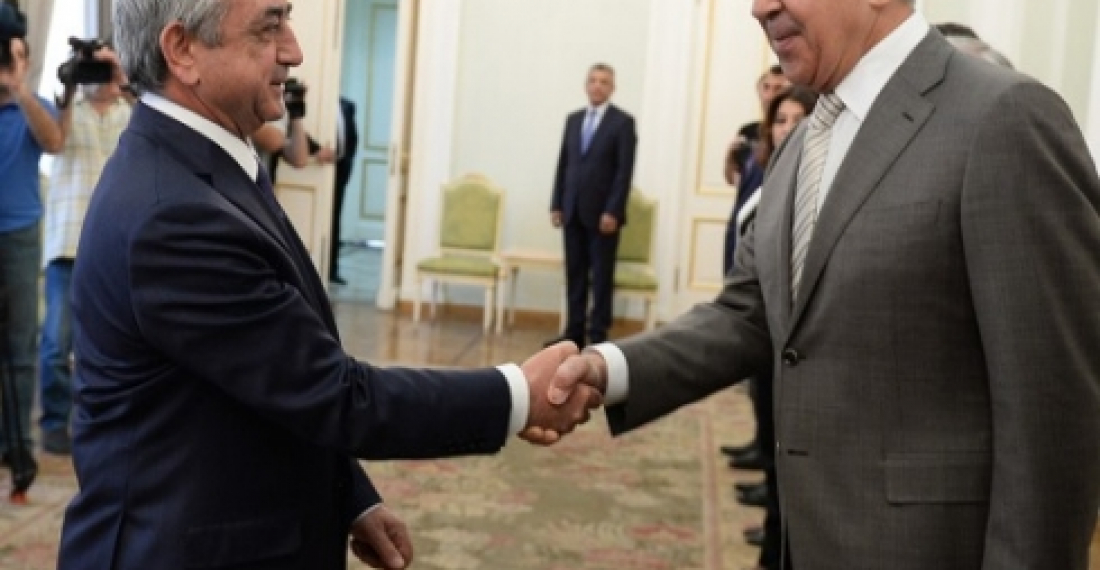Министр иностранных дел России Сергей Лавров в понедельник прибыл в Ереван в рамках его визита по Южному Кавказу. На прошлой неделе Лавров побывал в Баку, где провел переговоры с президентом Ильхамом Алиевым и другими правительственными чиновниками. В Ереване сегодня утром г-н Лавров был принят президентом Армении Сержем Саргсяном. Во время своей поездки Лавров также встретился с министрами иностранных дел двух стран.
Политический редактор Commonspace.eu сообщает, что эти поездки в Баку и Ереван оказались не из легких для главы российской дипломатии. "С продолжающимся глобальным кризисом, в том числе ситуация вокруг Украины, Сирии, Ирака и другие вопросы, создают огромный спрос на его время, и поэтому визит на Южный Кавказ может рассматриваться как ненужное отвлечение для министра иностранных дел Лаврова.
Тем не менее, в настоящее время для России, отношения с Арменией и Азербайджаном преобретают все более важный характер, поскольку она [Россия] стремится построить новый порядок на постсоветском пространстве. Сложнее места для этого, чем Южный Кавказ, не может быть, где Армения и Азербайджан втянуты в конфликт с момента распада СССР. Россия с большим трудом балансирует свои отношения с этими двумя странами. В то время как Армения официально является союзником - членом ОДКБ, и вскоре станет членом Евразийского таможенного союза, и Россия также заинтересована сохранить Азербайджан в сфере своего влияния. Это становится сделать все сложнее, так как Азербайджан в настоящее время стал гораздо настойчивее выдвигать свои требования и Лавров знает, что Азербайджан также поддерживает тесные отношения с западными странами, такими как США и Великобритания, а также с Европейским Союзом. Попытки пророссийских сторонников в Баку сорвать эти отношения до сих пор срывались.
В то время как тема Карабаха преобладает в ходе обсуждений с правительствами обеих стран, Лавров, скорее всего, проведет большую часть времени, обсуждая двусторонние отношения с правительствами обеих стран. В Ереване Лавров также обсудил вопросы, касающиеся допуска Армении в рамках Таможенного союза и Евразийского экономического союза. Армения пытается извлечь максимально возможную цену за то, что выбрала этот вектор развития в своей внешней политике. В то время как Россия с пониманием относится к этому, и в значительной степени любезна с ней, хоть и у других двух государств-членов, Казахстана и Белоруссии, кажется, есть проблемы. В настоящее время обсуждения проходят в Сочи по нескольким нерешенным вопросам. Лавров заявил в Ереване, что он надеется на хорошие новости из Сочи".
источник: commonspace.eu
фото: Президент Армении Серж Саргсян, приветствует министра иностранных дел России, Сергея Лаврова, в Ереване, 23 июня 2014 года (фото любезно предоставлено пресс-службой президента Армении).







